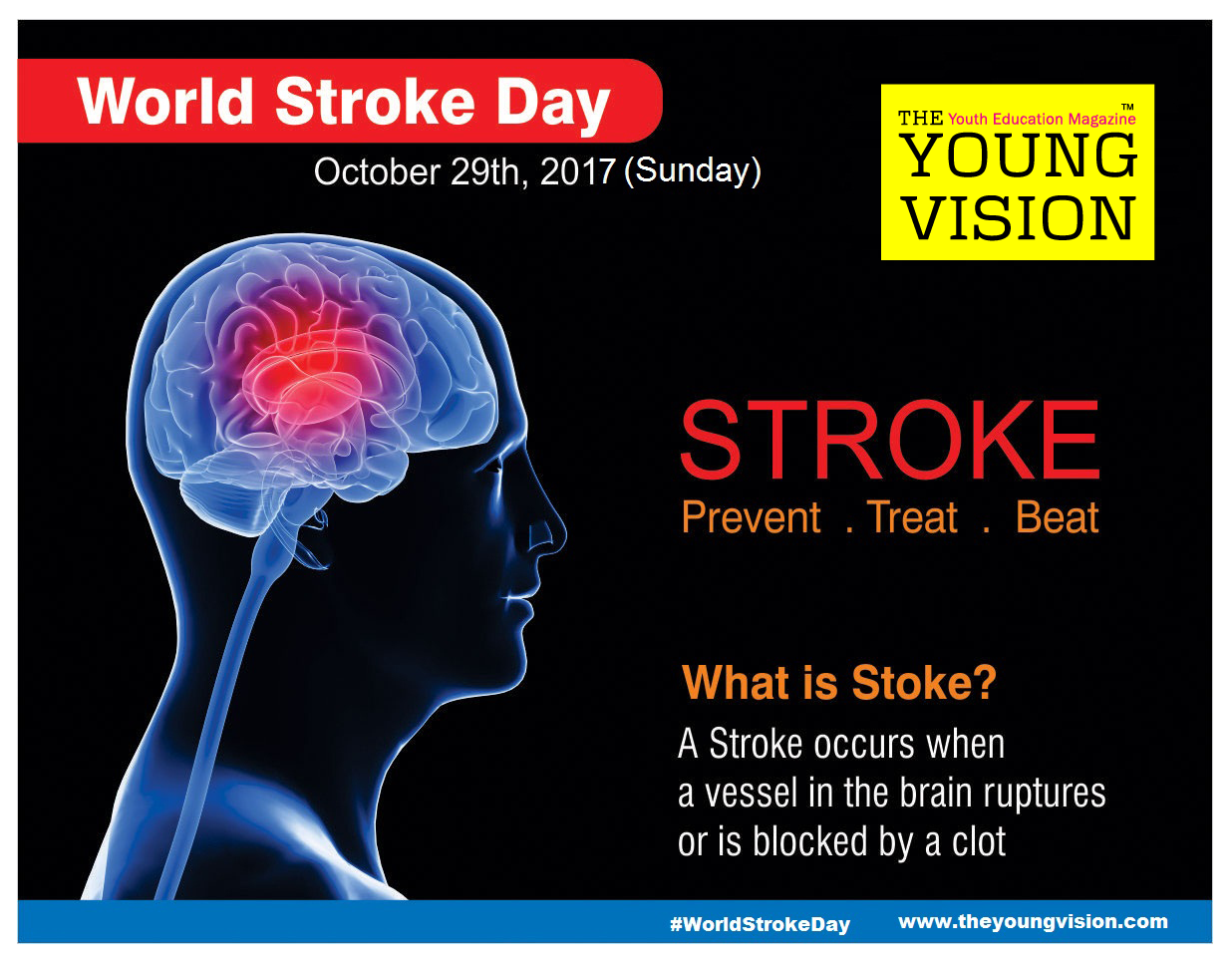
World Stroke Day: We Can Prevent Stroke

Stroke happens when the blood supply to part of the brain is cut off. Without blood, brain cells can be damaged or die. Depending on which part of the brain is affected and how quickly the person is treated, the effects of stroke on survivors can be devastating to a person’s body, mobility and speech, as well as how they think and feel.
Stroke is a leading cause of death and disability globally. It can happen to anyone at any age, and impacts everyone: survivors, family and friends, workplaces and communities. From making individual changes, to advocating globally and locally for policies that will deliver healthier communities, we can all do something to prevent stroke.
There are many reasons to get motivated to prevent stroke, including wanting to stay healthy for yourself and your family. To celebrate World Stroke Day on October 29, get the facts about stroke and learn three more reasons to get motivated to prevent stroke from happening to you or a loved one.
1. Most strokes are preventable.
Stroke doesn’t have to happen—up to 80% of strokes can be prevented.2
Most strokes are ischeic strokes. Ischemic strokes happen when blood flow to the brain is blocked, usually by a blood clot or plaque. You can lower your risk for stroke by making healthy lifestyle choices and by managing health conditions that lead to stroke, such as high blood pressure and high cholesterol.
To prevent stroke, focus on improving these four areas:
- Stay physically active. Only about 1 in 5 adults get enough aerobic exercise and strength training.3 Physical activity strengthens your heart and blood vessels, keeping them elastic and healthy. Experts recommend getting 2 hours and 30 minutes of moderate-intensity aerobic exercise, such as cycling or brisk walking, each week. That’s just 30 minutes a day, five days a week.
- Choose healthy foods. Limit your intake of salt (sodium) and foods high in saturated fats. Salt increases blood pressure, and saturated fats have been linked to high cholesterol. High blood pressure and high cholesterol are two leading risks for stroke. Try flavoring your meals with lemon, herbs, and spices rather than salt. Make sure you eat plenty of fresh fruits and veggies each day; they have fiber, which may help lower cholesterol.
- Do not smoke. Not smoking is important for your health. Smoking is the leading cause of preventable death.4 Smoking can cause stroke as well as other conditions that can hurt your heart and brain, including heart disease, diabetes, and cancer. Learn how to quit smoking.
- Take medicines if needed. About 1 in 4 adults, age 65 or older, with Medicare Part D prescription drug insurance do not take their blood pressure medicine as directed.5 Work with your health care team to manage high blood pressure and high cholesterol.
2. Stroke is a leading cause of disability.
About 1.4 million Americans are living with a disability because of stroke.6 Stroke damages the brain, so disability caused by stroke can include trouble thinking, speaking, walking, and moving. During a stroke, every minute matters. Getting to the hospital quickly can help prevent disability and death from stroke.
Know the signs and symptoms of stroke and act F.A.S.T. (see sidebar) if you or someone you know is having a stroke.
3. Your risk for stroke may be higher than others.
Stroke can happen at any time to any person, but your risk for stroke may be higher if you:
- Are a woman. Although they can happen to men and women, strokes are more common in women, in part because women live longer than men. In fact, 1 in 5 women age 55 and older will have a stroke in her lifetime. About 6 in 10 stroke deaths happen to women.7
- Are African American or Hispanic. African Americans are about twice as likely to have a stroke as whites. African Americans are also more likely to die from stroke than whites.8 Stroke rates are also higher among Hispanics than among whites, especially at younger ages.9
- Have a family history of stroke. Your genes play a role in your stroke risk. Your stroke risk is even higher if you also have unhealthy habits or conditions, such as smoking, obesity, or high blood pressure.
